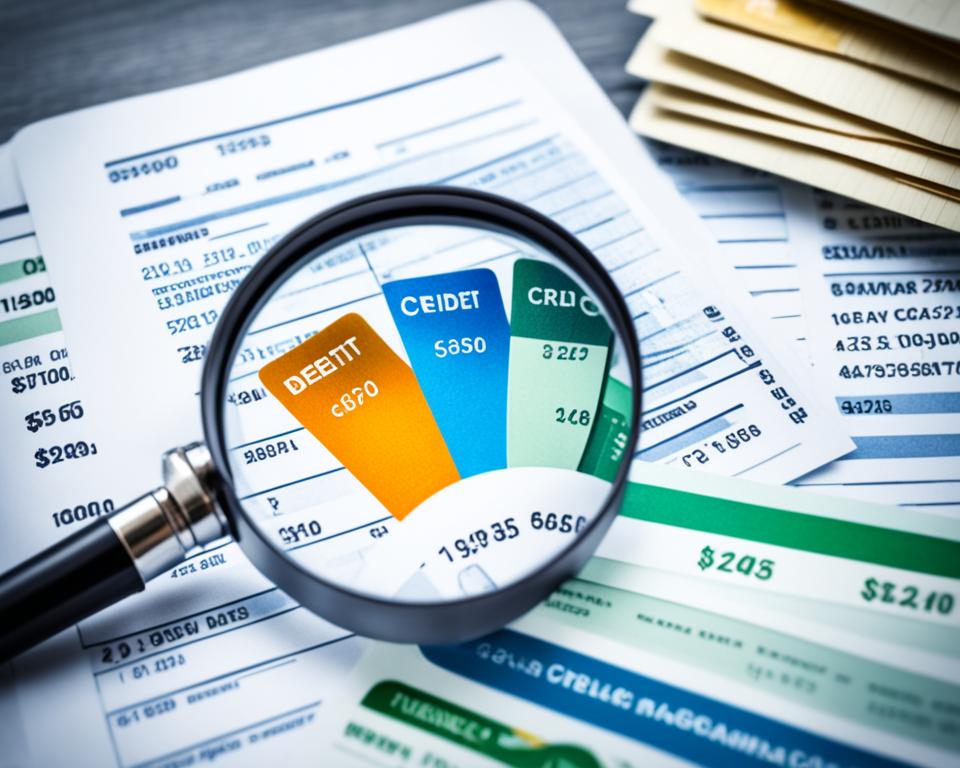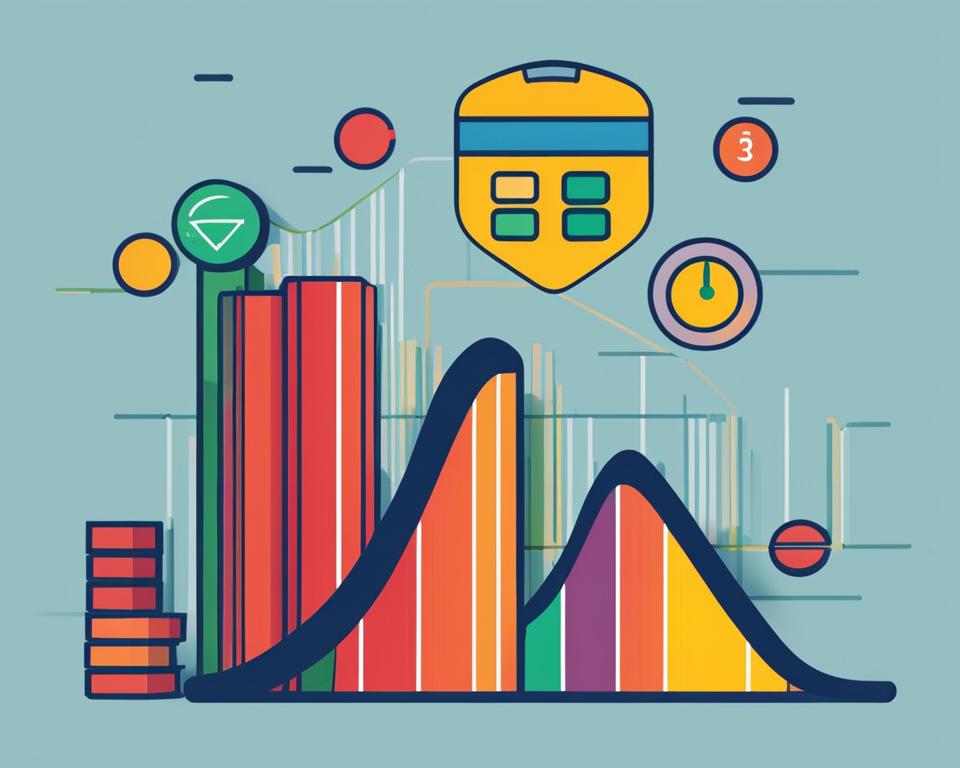For many Americans, managing a multitude of debts can become an overwhelming task. With various due dates, interest rates, and balances to keep track of, financial obligations can quickly become a complex web that hinders rather than helps one’s economic progress. This is where consolidation loans come into play, offering a viable solution for those looking to streamline finances and simplify debt. A consolidation loan allows individuals to combine multiple debts into a single, manageable payment, potentially reducing interest rates and monthly payments. It’s a strategic move towards debt management and long-term financial consolidation, designed to make financial planning easier and more intuitive. The simplicity of a single payment can also decrease the chances of late or missed payments, thus, enhancing one’s financial health and stability.
Key Takeaways
- Consolidation loans merge numerous debts into one, offering a simpler way to manage finances.
- These loans can lead to lower interest rates, resulting in potential savings and faster debt repayment.
- A single monthly payment helps ensure timely payments and better budget management.
- The right consolidation loan can assist in improving one’s credit score by enhancing credit utilization.
- Choosing the best consolidation loan requires careful consideration of terms, rates, and overall financial impact.
Understanding Debt Consolidation
When debts start to pile up, finding a way to bring them under control becomes critical. Debt consolidation, a term that has grown in prominence amongst financial strategies, offers an accessible route to managing and repaying multiple debts in an organized manner. This approach is not just about simplicity, but also could lead to substantial cost savings and lay down the journey towards financial liberty.
The Basics of Combining Multiple Debts into One
To consolidate debt means to take several debts, whether they are credit card balances, medical bills, or personal loans, and combine them into a single loan. This restructuring allows for a clearer overview of finances and turns what used to be multiple payments spread across the month into a single, consolidated monthly payment. The aim here is not only to create a more manageable and less daunting debt repayment system but also to obtain a lower overall interest rate, reducing the amount of money paid out over the lifetime of the debts.
How Debt Consolidation Can Lead to Financial Freedom
Financial freedom is an aspiration for many, and loan consolidation is a step in the right direction for those looking to break free from the chains of debt. By simplifying the repayment process and often reducing interest rates, a sensible financial restructuring plan can enable individuals to pay off their debts quicker than if they continued to tackle each one separately. Achieving a zero balance is no longer a distant dream but a foreseeable reality with the right consolidation strategy.
| Debt Type | Interest Rate Before Consolidation | Interest Rate After Consolidation | Estimated Interest Savings |
|---|---|---|---|
| Credit Card Debt | 20% | 10% | $1,000 |
| Medical Bills | 15% | 10% | $500 |
| Personal Loans | 10% | 8% | $200 |
As shown in the table above, debt consolidation can be a powerful tool in reducing overall interest costs and expediting debt repayment. But remember, this strategy works best for those who have a good credit history and are committed to maintaining financial discipline post-consolidation.
The Advantages of Consolidation Loans
Exploring the numerous benefits that consolidation loans bring to the table, consumers are often enticed by the promise of financial consolidation, which provides a more organized approach to managing debt. Notable for their ability to streamline payments, these loans typically converge multiple debt sources into one manageable monthly payment.
One of the fundamental perks of consolidation loans is the potential for lower interest rates. Individuals with commendable credit are frequently granted rates that are considerably more favorable than those of average credit card debts. This directly translates into cost savings and reductions in overall debt over time. In addition, a fixed repayment schedule aids consumers in meticulous financial planning, ensuring that payment timelines are clear and budget-friendly.
A substantial credit boost can also be a byproduct of choosing a consolidation loan. This boost is driven by enhanced credit utilization—owing to the consolidation of various higher-interest accounts under a single, lower-interest loan—and the establishment of a consistent history of on-time payments. Such prudent financial behaviors are instrumental in elevating one’s credit score.
- Streamlined monthly payments for enhanced ease of management
- Possibility of lower interest rates based on creditworthiness
- Predictable, fixed repayment schedules that simplify budgeting
- Improved credit scores through diligent payment activity and improved credit utilization ratios
In conclusion, the myriad advantages of consolidation loans position them as an attractive debt management option for those seeking to efficiently tackle their financial obligations and potentially improve their credit standing in the process.
Is Debt Consolidation the Right Choice for You?
When considering debt consolidation, it’s essential to take a step back and look at your overall financial situation. This strategic financial move could be the key to managing your debts more efficiently, but it’s not a one-size-fits-all solution. Each individual’s financial landscape is unique—a thorough financial situation assessment is the cornerstone to making an informed decision.

Assessing Your Financial Situation
An honest evaluation of your finances is vital before moving forward with debt consolidation. What’s the total sum of your current debts? Are the monthly payments manageable within your budget? Consider your credit score, as this will largely determine the interest rates available to you. The goal here is to gain a broad picture of where you stand to identify whether consolidation can indeed improve your fiscal well-being.
Evaluating Debt Amounts and Interest Rates
How much do you owe, and what are the associated interest rates? These questions are at the heart of debt consolidation. To evaluate debt, list all current balances alongside their interest rates, making sure to highlight any especially high rates that can be lowered through consolidation. The purpose of a debt consolidation loan is not just to simplify your finances but also to provide savings on the interest you pay over time. Using an interest rate comparison can guide you to a decision that aligns with not just immediate relief but also long-term financial stability.
Key Factors to Consider When Choosing Consolidation Loans
When delving into the world of consolidation loans, it’s imperative to weigh several critical elements to secure a financial future. To streamline the decision-making process, certain factors should be at the forefront for anyone considering loan refinancing or taking out personal loans for the purpose of debt repayment. These aspects are not just about finding relief from multiple debt payments but also about aligning with one’s personal repayment strategy and financial well-being.
Firstly, compare the interest rates offered on consolidation loans to the current rates on your debts. A loan that doesn’t significantly lower your interest expense may not be worth the switch. Pay immense attention to the terms and conditions, as these dictate the repayment period and flexibility, directly impacting your debt management plan.
Beyond the interest rate, consider the variety of fees associated with choosing consolidation loans, from origination fees to penalties that could be incurred. It’s essential to verify the fee structure to avoid unexpected costs that can undermine the benefits of consolidation.
Credit requirements set by lenders are equally crucial. A good credit score often unlocks better interest rates, while a lower credit score might limit options or raise costs. This underscores the importance of maintaining a solid credit profile.
- Interest Rate Comparison
- Loan Terms and Length
- Fees (Origination, Late Payment, and Prepayment)
- Credit Score and Financial Stability Requirements
- Total Cost Over the Life of the Loan
In conclusion, taking these factors into account can help potential borrowers make informed decisions. Understanding the full picture, including the long-term implications and overall cost, will ensure that loan refinancing and consolidation serve their intended purpose: to facilitate smoother, more manageable debt repayment.
Types of Consolidation Loans Available
When it comes to taking control of your financial situation, understanding the various types of consolidation loans available can be the first step towards debt freedom. Among the options, individuals will find balance transfer credit cards, offering low or zero introductory APRs, which can provide significant interest savings during the initial period. These cards are particularly useful for managing high-interest credit card debt, enabling a strategic payoff plan.
Another strong candidate for debt consolidation is home equity loans, which are secured by your property and generally offer fixed interest rates. They can be a smart choice if you have accumulated substantial equity in your home and are seeking predictable monthly payments over a long-term period.
For those looking for modern lending solutions, peer-to-peer loans emerge as a flexible alternative. These loans are facilitated online and connect borrowers directly with investors, potentially offering more lenient lending criteria and faster funding than traditional financial institutions. However, it’s important to thoroughly understand the terms and risks involved with each lending platform.
Traditional debt consolidation loans are unsecured loans that consolidate multiple debts into one, typically with a lower interest rate. Aimed at simplifying repayments and reducing the amount paid over time, these loans require careful consideration regarding eligibility and terms to ensure they fit your debt repayment strategy.
Each consolidation method comes with unique benefits and considerations, tailored to different financial situations and goals. Below is a comprehensive table to help elucidate the distinct features and potential advantages of each type of loan:
| Loan Type | Key Features | Advantages |
|---|---|---|
| Balance Transfer Credit Cards | Low introductory APR | Potential savings during initial period |
| Home Equity Loans | Secured with fixed rates | Lower rates and longer repayment terms |
| Peer-to-Peer Loans | Flexible lending criteria via online platforms | Accessible to a wide range of credit scores |
| Debt Consolidation Loans | Unsecured with fixed interest rates | Single monthly payment, potential for lower overall interest |
Consideration of these options should be guided by careful analysis of your existing debts, knowing the stakes tied to assets—and above all—the commitment to a disciplined repayment plan to optimize the benefits of consolidation. Remember, the right choice varies from person to person, depending on individual credit scores, the total debt picture, and long-term financial objectives.
Consolidation Loans and Your Credit Score
The journey to improving your financial health often involves strategic moves, one of which could be securing a consolidation loan. Although this financial action could initially have an impact on your credit score, it’s critical to recognize the dual nature of its effects—a short-term dip can lead to long-term credit enhancement. Understanding the nuances of how a consolidation loan interacts with your credit score is fundamental for anyone looking to improve credit and achieve consolidation loan approval.

Impact on Credit Score After Loan Approval
Upon approval for a consolidation loan, your credit report will reflect a hard inquiry, which may slightly reduce your score. However, it’s a temporary decrease that usually levels out fairly quickly. The primary advantage reveals itself as you utilize the loan—consolidating multiple balances into one and maintaining timely repayments contributes positively to your credit history, thus potentially boosting your score over time.
Strategies for Improving Credit Through Consolidation
Improving your credit score post-consolidation loan approval involves meticulous management of your finances. Here’s a breakdown of effective strategies that could set you on a path to a better credit profile:
- Maintain lower balances on other lines of credit to avoid high credit utilization ratios.
- Ensure consistent, on-time repayments to build a positive payment history.
- Monitor your credit report regularly to check for accuracy and identify areas for improvement.
- Keep old accounts open to lengthen your credit history, unless they have costly annual fees.
| Before Consolidation Loan | After Consolidation Loan |
|---|---|
| Multiple Payments, High Interest Rates | Single Payment, Potentially Lower Interest Rate |
| Variable Payment Amounts and Due Dates | Consistent Monthly Payment and Due Date |
| Higher Credit Utilization Ratio | Lower Overall Credit Utilization |
| Potential for Late or Missed Payments | Streamlined Payment Process Enhances Timeliness |
Debt Consolidation with Balance Transfer Cards
When considering debt consolidation options, balance transfer cards stand out as a compelling choice for those looking to tackle high-interest debts. By transferring balances to a card with a significantly lower APR during an introductory period, borrowers can focus on repaying principal amounts rather than accruing interest, thereby streamlining their financial obligations.
Pros and Cons of Balance Transfer Options
Balance transfer cards can be a powerful tool for debt management. The primary advantage lies in the low or zero percent interest rates offered during the introductory period. Such offers can lead to substantial savings on interest payments, allowing debtors to pay down balances more quickly. However, it’s essential to understand the associated fees — like balance transfer fees, which typically range from 3% to 5% of the transferred amount. Additionally, if the balance isn’t paid off within the promotional period, cardholders could face high revert rates.
Navigating the Introductory Period and Associated Fees
To make the most of a balance transfer card’s benefits, creating a strategic repayment plan before the introductory period concludes is imperative. Pay close attention to the length of this period and aim to pay off the full balance before it ends to avoid interest charges. It’s also prudent to consider other associated fees such as annual fees or penalties for late payments, which can diminish the consolidation’s effectiveness.
- Review the card’s terms and conditions for the precise duration of the low-interest offer.
- Calculate the total cost of transferring a balance, including fees.
- Devise a monthly payment plan that aligns with your budget and the introductory period.
- Monitor your account regularly to avoid missed payments and the resulting penalties.
By leveraging balance transfer cards wisely, you can turn the tide on high-interest debt, paving the way to financial stability through smart consolidation strategies.
Home Equity Loans as Debt Consolidation Vehicles
With the allure of low-interest rates and the comfort of larger loan amounts, home equity loans are redefining the debt consolidation landscape. Often seen as one of the most reliable debt consolidation vehicles, these loans provide a way for individuals to streamline their financial obligations. By tapping into the value of one’s home and securing collateral security, borrowers can potentially pay off various high-interest debts, making management of finances more coherent and less burdensome.
However, the decision to use one’s home as leverage should not be taken lightly. As much as home equity loans offer attractive interest rates, it’s important to acknowledge the significant risk they pose – the possibility of losing one’s home in case of default. Therefore, while they can indeed serve as potent consolidation tools, it’s crucial to assess the long-term implications carefully.
Consider these pivotal factors when contemplating a home equity loan for consolidation purposes:
- The interest rate comparison between existing debts and the potential new loan
- The feasibility of the loan term’s duration, ensuring it aligns with your financial roadmap
- The inherent risks associated with offering your home as collateral security
- The potential for an increased total repayment cost over an extended loan period
By meticulously weighing these elements against the immediate need to reduce monthly payments, individuals can make an informed decision. It is this balance between immediate relief and future financial stability that characterizes the judicious use of home equity loans in the vast realm of debt consolidation strategies.
Consolidation Loans for Personal Debt Management
Unsecured personal loans have become a cornerstone in the realm of personal debt management. These financial tools offer an alternative to the high-interest rates that plague consumers’ credit card balances and other forms of debt. Through the prudent use of such loans, individuals can consolidate various debts into one manageable payment, thereby streamlining their financial obligations and potentially reducing their overall interest burden.
Unsecured Personal Loans for Debt Consolidation
Taking out an unsecured personal loan is a strategic move for those seeking debt consolidation without the need to offer collateral. These loans are particularly favorable for individuals with a strong credit history as lenders use creditworthiness as the primary eligibility criterion. By obtaining an unsecured loan with lower loan terms than existing debts, consumers can enjoy the ease of a single monthly payment and often, a lower cumulative interest rate.
Eligibility Criteria and Loan Terms
When considering an unsecured personal loan for debt consolidation, lenders will scrutinize your credit score, income stability, and debt-to-income ratio. These eligibility criteria are pivotal in determining not only if an individual qualifies for the loan but also influence the loan terms, which include the interest rate and repayment period. Such terms are significant as they affect the monthly payment amount and the total interest paid over the lifetime of the loan.
In personal debt management, understanding and satisfying the eligibility criteria for an unsecured personal loan can be instrumental in achieving a structured and less stressful path to debt freedom. The right loan terms can align with your financial situation, proving crucial in the journey toward regaining financial stability and peace of mind.
Exploring Peer-to-Peer Lending for Debt Consolidation
Peer-to-peer lending (P2P) has emerged as a significant player in the world of debt consolidation, introducing a world where traditional financial intermediaries like banks are no longer gatekeepers. This form of lending utilizes an online platform to connect borrowers directly to investors willing to fund their loans. Particularly attractive for those exploring alternative lending options, P2P can be an ideal solution for many looking to consolidate their debts.
Unlike traditional lending institutions, peer-to-peer lending platforms often provide more accessible lending opportunities, especially for those with lower credit scores. However, it’s crucial for borrowers to explore various aspects of P2P loans to ensure these alternatives align with their financial goals and offer competitive advantages over other debt consolidation methods.
| Peer-to-Peer Lending Aspect | Consideration for Borrowers |
|---|---|
| Interest Rates | May offer better rates than traditional loans depending on creditworthiness and investor demand. |
| Fees | Origination, closing fees and potential prepayment penalties should be factored into the total cost. |
| Repayment Terms | Terms may be more flexible, allowing borrowers to find options that suit their repayment ability. |
| Funding Time | Often faster access to funds than through traditional lending routes. |
| Lender Variety | A diverse pool of investors can lead to varied loan offers, terms, and opportunities. |
| Credit Impact | Responsible repayment can improve credit score over time. |
In conclusion, for those considering peer-to-peer lending as a method for debt consolidation, it is worth weighing the individualized loan offers and terms against other options available in the market. While P2P lending platforms can be integral to diversifying alternative lending options, due diligence is key in making an informed borrowing decision.
Debt Management Plans vs. Loan Consolidation
When it comes to addressing accumulated debt, individuals are often faced with multiple options, each with its own set of advantages and considerations. Two prevalent approaches include debt management plans and debt consolidation loans. A comprehensive repayment strategy comparison is essential to understand which method may suit one’s financial circumstances and long-term goals.
Debt management plans offer a route to repay debt by working with credit counseling agencies to negotiate with creditors. These plans aim for favorable terms such as reduced interest rates or waived fees, effectively streamlining various payments into a single monthly commitment. Conversely, debt consolidation loans are financial products that amalgamate multiple debts into one loan, usually with a potentially lower interest rate, simplifying payment processes but potentially including additional fees.
| Feature | Debt Management Plan | Debt Consolidation Loan |
|---|---|---|
| Credit Requirement | Not tied to credit score | Requires good credit rating |
| Interest Rates | May reduce through negotiation | Typically lower than credit card rates |
| Fees | Possible monthly service fees | Potential origination fees |
| Monthly Payments | Consolidated into single payment | Single loan payment, may lead to lower monthly cost |
| Impact on Credit | Can improve credit if payments are on time | Can improve credit score after initial inquiry impact |
Choosing between a debt management plan and a debt consolidation loan typically hinges on the debtor’s unique financial landscape. Debt management plans are well-suited for individuals who may not have the best credit score, but who are seeking to regain control of their finances without taking on new loans. Debt consolidation loans, on the other hand, are often more attractive to those with stronger credit who could benefit from consolidating under a single, lower-interest loan.
Ultimately, the decision between these two options is nuanced and should be made after a thorough analysis of personal debt levels, credit standing, and financial objectives. Seeking advice from financial experts or credit counselors can offer tailored insights to make an informed choice that aligns with both immediate needs and long-term financial health.
Strategies to Pay Off Debt Faster with Consolidation Loans
One of the most effective debt consolidation strategies to pay off debt involves a meticulous approach that turns overwhelming financial burdens into manageable payments. Achieving faster repayment is not only about having a consolidation loan in place but also how well you utilize the flexibility and structure it provides.

A cornerstone technique is to negotiate for a consolidation loan with an interest rate lower than your current debts. This reduces the amount of money you pay overall, allowing you to direct extra funds towards the principal balance. Here’s where the power of autoscheduling payments comes into play, reinforcing the habit of timely payments to avoid late fees and keep your repayment plans on track.
- Compare interest rates from multiple lenders to secure the best deal.
- Use calculators to understand how different loan terms affect your repayment timeline.
- Always aim to pay more than the minimum due to chip away at the principal quicker.
Opting for a shorter loan term, albeit with higher monthly payments, significantly cuts the duration and total interest paid on your debt. It’s a robust move for those with a stable income that can accommodate larger payments without sacrificing essential financial responsibilities.
Additionally, incorporating any unexpected income, such as bonuses or tax returns, into your loan payment can expedite your payoff plan. The application of extra cash to your debt can shave months or even years off your consolidation loan, bringing you closer to financial freedom.
Remember, the key to faster debt freedom is persistence and disciplined financial management. Stay focused on your repayment goals and adjust your strategies as needed to ensure a smooth journey to a debt-free life.
Embrace these strategies with commitment, and watch your debt shrink more rapidly than you anticipated, paving the way to a solid and secure financial future.
Finding the Best Consolidation Loans Rates and Terms
When it comes to acquiring the best consolidation loans, undertaking a thorough loan comparison is essential. Those in search of favorable terms will find that possessing a high credit score typically unlocks the most favorable interest rates. It’s not only about the rates, however; understanding and comparing loan terms is critical for a cost-effective financing decision.
Lenders, both traditional and online, frequently advertise prequalification offers as a way to peek at potential rates without affecting your credit score. This step is highly recommended in filtering out the most attractive offers. Once this preliminary stage is completed, candidates should meticulously examine the annual percentage rate (APR), which encapsulates both the interest rate and any additional fees associated with the loan.
Remember, the lowest advertised rate isn’t always the cheapest option once all loan terms and fees are considered.
Below is a comparison chart highlighting key aspects one must evaluate to identify the best consolidation loans available:
| Lender | APR Range | Loan Term | Loan Amount | Prequalification | Fees |
|---|---|---|---|---|---|
| Lender A | 5.99% – 24.99% | 24 – 84 months | $5,000 – $40,000 | Available | Origination fee |
| Lender B | 6.99% – 18.99% | 36 – 72 months | $3,500 – $40,000 | Available | No origination fee |
| Lender C | 7.99% – 23.99% | 36 – 60 months | $7,500 – $50,000 | Not available | Late payment fee |
To determine which consolidation loan is the most suitable, borrowers should weigh factors such as repayment term and lender fees against the loan amount they need. Long loan terms may lower monthly payments, but they could also result in a higher overall cost due to accumulated interest. Conversely, short loan terms usually incur higher monthly payments, but result in less interest paid over time.
Mindful examination and comparison of these variables will guide borrowers toward securing a consolidation loan that not only alleviates the strain of multiple debt payments but does so with economically sound and manageable terms.
Conclusion
In summation, consolidation loans serve as a powerful mechanism for individuals aiming to streamline finances and pave a more manageable route toward debt freedom. The financial journey requires thoughtful navigation, where weighing one’s options and making informed decisions are paramount. It is through meticulous evaluation of one’s financial standing, aligning with the most fitting consolidated loan option, and scrutinizing the intricate details of rates and terms that such tools can be utilized to their fullest potential.
As part of effective financial planning, leveraging consolidation loans can indeed be the decisive step in an overarching strategy to manage finances with greater acumen. It’s not merely about consolidating debts but rather restructuring them in a way that aligns with personal financial goals and real-life affordability. The integration of these loans into a personalized financial plan can herald a new chapter of fiscal responsibility and stability.
Ultimately, achieving a debt-free status is more than a fiscal target; it’s a milestone of financial literacy and a disciplined lifestyle. Borrowers who embark on this journey, armed with knowledge and a steadfast approach towards their consolidation loan agreements, are setting the stage for a brighter, more secure economic future. Hence, when approached with due diligence and strategic action, consolidation loans are more than a temporary fix; they lay down the groundwork for long-lasting financial well-being.
FAQ
What are the benefits of consolidation loans?
Consolidation loans can simplify debt by combining multiple debts into a single loan with one monthly payment, potentially offer lower interest rates, and provide a fixed repayment schedule to help with budgeting. They can also lead to a credit score boost due to positive payment history and lower credit utilization.
How does debt consolidation lead to financial freedom?
Debt consolidation can expedite the debt repayment process by streamlining multiple debt obligations into one manageable loan, typically with more favorable terms. This can save money on interest and fees, help avoid missed payments, and ultimately lead to becoming debt-free more quickly.
How do I know if debt consolidation is the right choice for me?
To determine if debt consolidation is suitable for you, evaluate your financial situation, including your credit score, total debt, and interest rates on existing accounts. Consider if the consolidated loan will provide interest savings and if you can manage the single monthly payment within your budget.
What factors should I consider when choosing a consolidation loan?
Consider the interest rate compared to your current debts, loan terms, potential fees such as origination or prepayment penalties, and the lender’s requirements for credit scores and financial stability. Also, think about the total cost over the life of the loan and if it aligns with your financial goals.
What types of consolidation loans are available?
There are various consolidation loan options, including balance transfer credit cards with low introductory APRs, home equity loans, unsecured personal consolidation loans, and peer-to-peer loans. Each comes with distinct terms and benefits that should be evaluated to determine the best match for your situation.
Will a consolidation loan hurt my credit score?
Initially, your credit score may dip slightly due to the credit inquiry. However, over time, a consolidation loan can improve your credit score through consistent, on-time payments and lower overall credit utilization.
How do balance transfer credit cards work for debt consolidation?
Balance transfer cards allow you to move high-interest debt to a card with a low or zero introductory APR. This can save you money on interest charges during the promotional period, but it’s important to have a plan to pay off the balance before the period ends to maximize the benefits and avoid higher rates later.
What are the risks associated with using home equity loans for debt consolidation?
While home equity loans offer lower interest rates and the possibility to borrow larger sums over longer terms, they require your home as collateral. In the event of default, you risk losing your home. Also, if the loan term is extended, you could end up paying more in the long run than with your original debts.
What are the eligibility criteria for unsecured personal loans for debt consolidation?
Unsecured personal loans typically require a good credit rating, stable income, and a reasonable debt-to-income ratio. Lenders will review your financial background to determine eligibility and the loan terms, such as interest rate and repayment period.
How does peer-to-peer lending differ from traditional consolidation loans?
Peer-to-peer lending involves borrowing from individual investors through online platforms rather than traditional financial institutions. This can provide more flexible lending criteria, but it’s important to compare the rates, fees, and terms to traditional debt consolidation loans to ensure it meets your financial objectives.
What should I choose: a debt management plan or a loan consolidation?
If taking out a new loan is not ideal or if you are struggling with making payments on your current debts, a debt management plan might be suitable as it doesn’t involve incurring new loans and typically includes negotiating repayment terms with your creditors. However, if you have a good credit rating and can manage a single monthly payment, consolidation loans might offer quicker relief and potentially lower interest rates.
How can I find the best rates and terms for a consolidation loan?
You should compare multiple lenders, check prequalification offers without impacting your credit score, and consider the Annual Percentage Rate (APR), which encompasses both the interest rate and any lender fees. The better your credit score, the more favorable rates you might receive. It’s also wise to shop around with various lenders, both traditional and online, to find the best terms suited to your financial situation.





